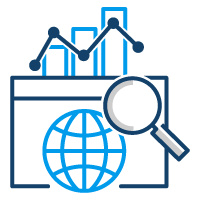
Introduction
In the global market place, any successful business is consistently thinking about how to find suppliers. However, identifying trustworthy suppliers who adhere to ethical practices can be challenging. To make informed decisions, businesses can leverage competitive trade data as a valuable tool for supplier sourcing, assessments, and investigations. This article explores how to find suppliers by unveiling trade activity and help companies better navigate the international seas of trade to find trusted partners.
Supplier Sourcing: The Quest for the Perfect Match
When considering how to find suppliers, relationships should be top of mind. When it comes to supplier sourcing, businesses need to consider several factors, such as cost-effectiveness, quality, reliability, and ethical practices. Competitive trade data offers valuable insights that can guide the process.
With robust import and export visibility, suppliers who strictly adhere to regulatory requirements and have a good track record of complying with international standards can easily be found.
Leveraging trade data as part of your initial process can help uncover any involvement of suppliers in fraudulent activities, counterfeiting, or non-compliance with trade laws or ethics.
Without credible data to vet suppliers with, businesses put themselves at risk. Remember if you’re the importer of record, you are at RISK!

Market Analysis: By analyzing trade data, businesses can identify countries and regions with a strong presence in specific industries. This information helps locate potential suppliers in areas known for their expertise in producing specific goods.

Price and Cost Analysis: By examining comparative pricing trends, businesses can determine whether a potential supplier offers competitive pricing or has significantly higher or lower prices than their competitors. This analysis contributes to making informed decisions regarding cost-effectiveness and ensures fair market pricing.

Transparency Equals Trust
By analyzing trade data, businesses can trace the origin of goods and assess the extent of a supplier’s participation in global value chains. A transparent supply chain is crucial for ensuring ethical practices, sustainable sourcing, and responsible production.
Supplier Performance & Assessments
When evaluating how to find suppliers, competitive trade data enables the evaluation of suppliers’ export volumes, growth rates, and market shares. By assessing these indicators, businesses can gauge the scale, reliability, and competitiveness of potential suppliers.
Supplier assessments are critical to ensure compliance with quality standards, ethical practices, and regulatory requirements. Competitive trade data can provide valuable inputs for these assessments:
Digging Deeper to avoid Risks
In some cases, businesses may need to conduct trade investigations into the backgrounds and practices of potential or existing suppliers. Competitive trade data can serve as a powerful tool to uncover hidden information, going back 5 or more years.
Trade data can reveal sudden changes in import or export patterns, ownership structures, or pricing trends, indicating potential irregularities or suspicious activities. These red flags serve as starting points for conducting detailed supplier investigations.
Relationships Matter
Competitive trade data can help identify key suppliers, customers, and trading partners of the target supplier. This insight provides a comprehensive view of the supplier’s network, potential dependencies, and potential risks associated with their business relationships.
Conclusion
The insights provided here serve as a great starting point for any business thinking about how to find suppliers. Competitive trade data empowers businesses with valuable insights for supplier research. Utilizing this data enables businesses to make well-informed decisions, evaluate supplier performance, and helps to mitigate risks associated with unreliable or unethical suppliers.
By harnessing the power of competitive trade data, businesses can navigate the global marketplace more effectively, build strong supplier partnerships, and ultimately ensure the delivery of high-quality products and services to their customers.
Adequate and thorough supplier sourcing, assessment, and investigation is vital to protect your brand reputation, maintain ethical practices, and maximize customer satisfaction. By leveraging competitive trade data, businesses uncover a supplier’s dirty laundry, and ultimately are empowered to make informed decisions.
How Descartes Datamyne Can Help
Descartes Datamyne delivers global trade data and intelligence with comprehensive, accurate, up-to-date, import and export information that helps companies save significant time in spotting supply and demand shifts, optimizing trade lanes, expanding into new markets and identifying new buyers and suppliers.
Datamyne features the world’s largest searchable trade database covering 230 markets across five continents. Gathered directly from official filings with customs agencies and trade ministries, including bills of lading, our data is detailed (down to company names and contact details), timely and authoritative.
Ask us for a free, no obligation demonstration.
Author

Chris Kahan
Senior Account Executive – Global Sales
Descartes



